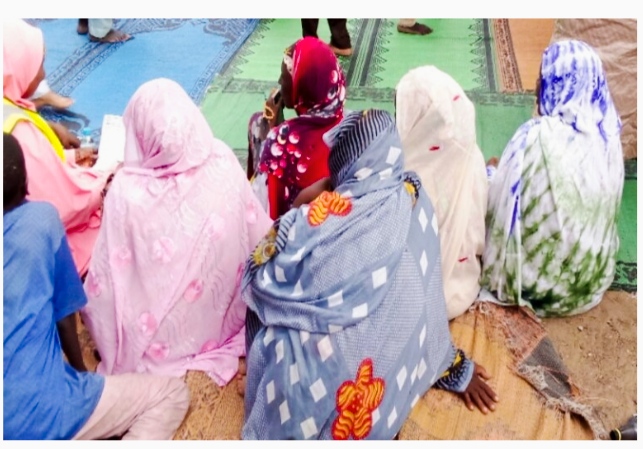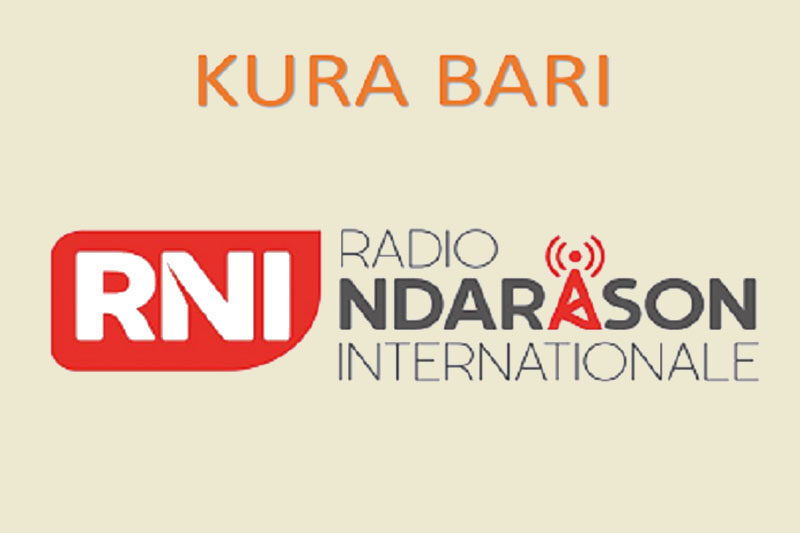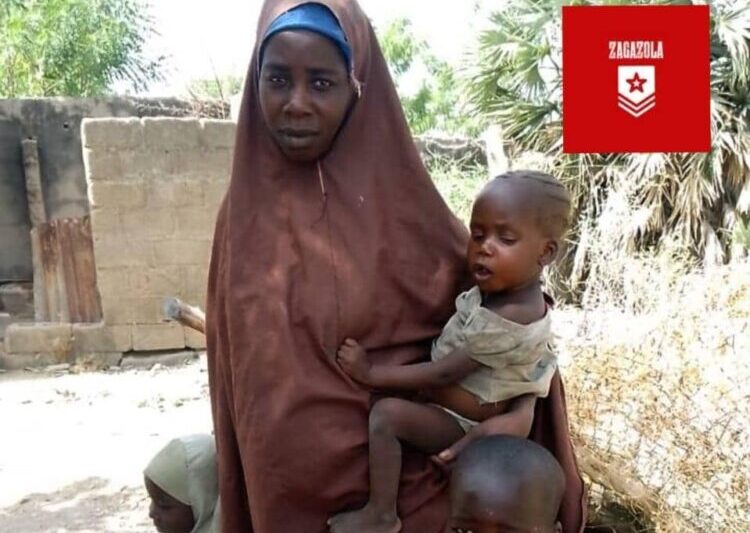Starving internally displaced persons (IDPs) in Gubio camp in Maiduguri took to the streets on Saturday, September 17, protesting against the lack the humanitarian aid – especially food.
Residents told RNI reporter Aisha Jamal that they hoped the protest, which took place on the streets outside the camp, would bring their plight to the attention of the authorities.
Muhammed Baba Alhaji Major said: “I originally came here from the Ngala Local Government Area. Our governor [Babagana Umara Zulum], visited this camp a while ago and promised he would resettle us in our ancestral communities. He told us that local and international non-governmental organisations [NGOs] would stop providing aid because as far as they were concerned the camp had been officially closed by the government.
“But we are still in the camp and we have not been returned to our homes. No one provides any aid and we cannot afford to take care of ourselves. Everything we have is finished and we don’t know what to do.
“To highlight our plight, we decided to organise a peaceful protest. We spoke to the leader of the Civilian Joint Task Force (CJTF) in the camp to tell him about the poor living conditions and asked him for advice. We told him we wanted to hold a peaceful protest. He agreed and gave us permission to do so.”
Major said youths were carrying banners on the street. There were police officers already standing at the entrance when residents saw the divisional police officer (DPO) and the police commissioner arrive.
“The commissioner sent the DPO to the camp where he spoke to the police officers. He told them to take statements from the residents but they did not have any notebooks, paper or pens. The DPO was furious and told them they did not know how to do their job.
“We had a banner that explained that we were starving and that was why we were protesting. We believe we are being deprived of our rights as citizens of Borno State and as Nigerians.
“We thought the authorities would come to our aid and help us. But instead, they ignored us and did not even speak to us, forget about giving us any food. We are angry because we have nothing and we feel we are stranded in this camp all because of the insurgency,” Major said.
Ali Adam said: “I’m originally from the Kushe Local Government Area. When the Boko Haram [the Jamā’at Ahl as-Sunnah lid-Da’way Wa’l-Jihād (JAS)] started attacking us, we fled to Cameroon. We really struggled there and then God enabled us to get back to Borno State and we have been living in Gubio Camp. It was good to be back in the state and there were lots of people from my village in Kushe living in the camp.
“Before the government stopped humanitarian aid, it used to be very lively and happy living here. We received the aid we needed from the NGOs and even the government provided some assistance.”
Adam said one day Zulum arrived at the camp and told the residents to gather together. All the adult residents were given a form to fill out and told that they would be resettled in their home communities.
“Zulum asked us if we would love to return to our ancestral homes and we all said yes. He said he would empower us by giving ₦100,000 to the men and ₦50,000 to the women. He told us that we would also be given food and essential items and that, once we were back home, we would be able to start farming again. This was great news because most of us are farmers,” Adam said.
“But the governor told us that we would no longer receive any aid, not food or other necessities, from the NGOs because we would all be returned to our respective local government areas where peace had been restored. We were jubilant about the good news and many of us started making preparations to go home. Some even started selling their belongings which, they believed, they would no longer need.”
Adam said that after Zulum’s visit, more officials arrived. “They told us that the government had decreased the amount of money they would give us, promising that the men would receive only ₦50,000 once we were resettled in our villages. We were given another form to fill out.
“During that time, many of the camp’s residents were resettled in their hometowns. We watched and waited for our turn. But it never came. We are still waiting. We have not seen or heard from any government officials. We don’t know what’s going on. That’s why we went ahead with the protest. Even when the police tried to stop us, we refused and told them we were starving and we needed help and support. How are we supposed to feed our wives and family without any support? We are stranded here.”
Adam said the residents were angry because they felt they were just being ignored; as if they meant nothing to the government; as if their basic rights were being trampled on by the government.
“We told the police officers that the only reason we had resorted to protesting was because we were hungry. The government must give us food and other essentials or allow the NGOs to assist us again. This is what we need urgently. The governor must do something to help us.
“The police officers took out statements and did not arrest anyone. But they said we should go through the proper channels if we want to hold a peaceful protest.
“We just hope our protest has caught the attention of the authorities. We did no harm. We just want the government to take note of our plight. We just want them to listen to us and take notice. We are hungry. We need food. We are tired of being ignored as if we do not even exist. We are tired of constantly looking for things to eat because we are starving. We just want the government to take heed of our basic rights,” Adam said.
AISHA SD JAMAL








